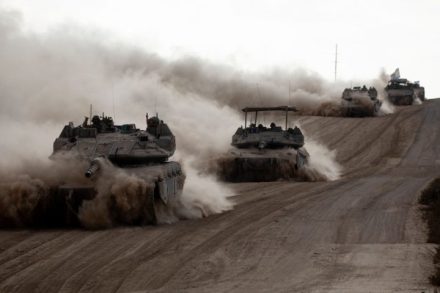Freddy Gray, Angus Colwell, Matthew Parris, Flora Watkins and Rory Sutherland
30 min listen
On this week’s Spectator Out Loud: after President Biden’s debate disaster, Freddy Gray profiles the one woman who could persuade him to step down, his wife Jill (1:05); Angus Colwell reports from Israel, where escalation of war seems a very real possibility (9:02); Matthew Parris attempts to reappraise the past 14 years of Conservative government (14:16); Flora Watkins reveals the reasons why canned gin and tonics are so popular (21:24); and, Rory Sutherland asks who could possibly make a better Bond villain than Elon Musk? (25:00). Presented by Patrick Gibbons.





















